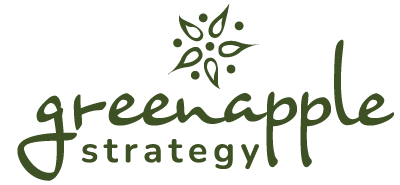As a marketing agency, we have the opportunity to constantly meet business leaders who have questions about marketing or are curious about our work. Almost every conversation starts with a similar refrain: “Our marketing strategy isn’t working,” or “We’re investing in marketing, but we’re not sure it’s making a difference.”
If you’re reading this and nodding along, you’re not alone. Many small and mid-size companies share this frustration. They’ve tried a bit of everything—social media, email marketing, paid ads—but nothing seems to move the needle. They’re left wondering why all that effort doesn’t seem to pay off.
After working with businesses in various industries, we’ve discovered a common theme: Most companies struggling with their marketing are thinking about tactics instead of strategy. Without a solid strategy to guide your efforts—no matter how many tactics you try—your marketing will likely fall flat. So, let’s dive into why this happens and what you can do about it.
The Misunderstanding That Might Be Holding You Back
When most businesses say their “marketing strategy” isn’t working, they typically mean that the tactics they’re using aren’t effective. But marketing is about more than just tactics. It requires a step back to assess the overall strategy—the larger plan that ties everything together. In many cases, a specific marketing strategy isn’t working because there wasn’t a true strategy in place to begin with.
So, what’s the difference between strategy and tactics?
- Strategy: This is your overarching plan. It defines where your business chooses to engage and how it plans to win in the market. Your strategy focuses on long-term goals and sets the direction for all your marketing efforts.
- Tactics: These are the tools and specific actions you use to execute your strategy. Tactics include things like email marketing, social media, account-based marketing, or running a Google Ads campaign.
Think of it this way: A strategy is like a roadmap, guiding you towards your destination. Tactics are the vehicles you use to get there. If your roadmap is flawed or incomplete, no matter how fast or fancy your vehicle is, you’re unlikely to reach your destination.
Stop Guessing: How to Develop a Marketing Strategy That Works
At Green Apple, we’ve had the privilege of developing marketing strategies for dozens of B2B and B2C clients over the years. Based on our experience, we’ve identified several best practices that can help businesses resolve the issue of “marketing not working.”
Here’s how to get started:
1. Define Your Target Market and Buyer Personas
One of the biggest reasons marketing efforts fail is because companies aren’t sure who they’re trying to reach. By identifying your target market and creating detailed buyer personas, you can ensure your marketing message is speaking to the right people. This clarity helps shape everything from the content you produce to the channels you focus on.
2. Identify Your Unique Value Proposition
What sets your business apart from the competition? Why should customers choose you over others? A strong marketing strategy starts with a clearly defined unique value proposition (UVP). If your marketing isn’t resonating, it may be because your UVP isn’t clear. Make sure your marketing communicates your strengths and tells customers why your business is the best solution for their needs.
3. Align Marketing with Business Objectives
An effective marketing strategy doesn’t operate in a vacuum. It should support your larger business goals. Whether you’re trying to increase revenue, enter new markets, or raise brand awareness, your marketing efforts should be aligned with these objectives. Without this connection, it’s easy for marketing to feel disjointed or irrelevant to your business’s overall success.
4. Evaluate Your Marketing Funnel
It’s easy to focus on driving traffic or engagement, but what happens once potential customers are in the funnel? An effective strategy considers every stage of the buyer’s journey. Take time to assess each part of your marketing funnel. Are there areas where leads are getting stuck or falling off? Are there opportunities to strengthen the bridge between your marketing and sales efforts?
5. Pivot Without Starting Over
If your marketing isn’t delivering results, don’t panic and throw out everything. Instead, look for ways to pivot without abandoning your approach entirely. Maybe it’s time to refine your messaging or shift focus to a different channel. Adjusting your tactics can help you course-correct while still building on the strategy you’ve established.
6. Equip Your Team for Success
Even the best strategy will fall short if your team doesn’t have the tools and skills to execute it effectively. Are you confident in your team’s ability to manage your marketing efforts? If not, it might be time to reconsider your expectations, hire additional staff, or bring in an external agency for support.
7. Create a Marketing Sandbox
Marketing is constantly evolving, and it’s important to leave room for experimentation. A “marketing sandbox” allows you to test new ideas and explore emerging trends in a controlled environment. This could involve experimenting with a new social media platform, trying out a different content format, or testing innovative ad strategies. The key is to learn what works without overhauling your entire marketing plan.
Ready to Refine Your Marketing Strategy?
If your marketing efforts aren’t delivering the results you want, don’t worry—you’re not alone. The good news is that by taking a step back and focusing on strategy rather than just tactics, you can turn things around.
At Green Apple, we’re passionate about helping businesses build effective marketing strategies that lead to real, measurable results. If you’d like to learn more about how we can help your business succeed, connect with our team today. We’d love to help you create a marketing strategy that works for you.


